Exploring the world of off-road adventures requires the perfect pair of tires to match your vehicle’s capabilities and your journey’s demands. Whether you’re tackling rugged trails, navigating muddy terrains, or even venturing onto highways, selecting the right off-road tire options is crucial for optimizing performance and safety. In this comprehensive guide, we’ll delve into the best off-road tire choices, compare tire sizes, and evaluate which options are ideal for various scenarios. From understanding the differences between all-terrain and specialized off-road tires to exploring tire size charts and compatibility, this article will provide you with the insights needed to make an informed decision. Discover how the right tire can significantly enhance your off-road experience while ensuring reliability and durability. Let’s dive into the world of off-road tires and unlock the secrets to achieving peak performance on any terrain.
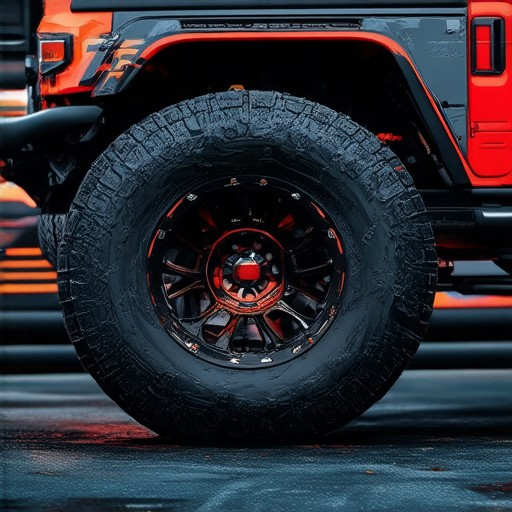
Best Type of Tire for Off-Road
When it comes to choosing the right tires for off-road adventures, there are several options tailored for different terrains and conditions. Here’s a breakdown of the best types of tires for various off-road scenarios:
- Mud-Terrain Tires : These are the top choice for extreme off-road conditions such as mud, dirt, gravel, and rock. Their aggressive tread pattern provides exceptional traction and durability in challenging environments.
- All-Terrain Tires : A great middle ground for general off-road use, these tires offer a balance between on-road comfort and off-road capability. They’re ideal for trail riding and light-duty off-road tasks.
- Gravel Tires : Designed for rough terrain, gravel tires feature large tread blocks that excel in loose surfaces and uneven ground, making them perfect for dirt paths and gravel roads.
- Sand-Specific Tires : Built for sandy environments, these tires have deep treads that help maximize grip on soft surfaces like desert dunes.
Choose the type of tire that best fits your primary off-road activity. Consider factors like tread depth, weight capacity, and vehicle compatibility to ensure optimal performance and safety.
For more information on these tire options, visit our trusted partners:
- Maxxis Tires
- BFGoodrich Tires
- Goodyear Tires
- Cooper Tires
Best Tyres for Off-Roading
When it comes to off-roading, selecting the right tyres is crucial for maximizing performance and safety in various terrains. Here are some of the best tyre options for off-roading, along with considerations for your vehicle and driving style:
- Mud-Terrain Tyres : Ideal for vehicles that frequently encounter muddy or wet conditions. These tyres feature aggressive tread patterns designed to maximize traction in soft surfaces. Brands like Nitto and Goodyear offer excellent mud-terrain tyres such as the Nitto Trail Grappler and Goodyear Wrangler Mud-Terrain .
- All-Terrain Tyres : A versatile option for drivers who encounter a mix of mud, gravel, and light rock conditions. These tyres strike a balance between traction and durability. The BF Goodrich KO Revised is a popular choice for its excellent performance in varied off-road settings.
- Rock Crawler Tyres : Designed for extreme off-road conditions, these tyres have deep treads and robust construction for maximum grip on rocks and uneven surfaces. The Mickey Thompson Baja KT is highly regarded for its exceptional rock-crawling performance.
- Larger Wheel Tyres (Optional) : For vehicles with larger wheelbases, 37-inch or 38-inch tyres are often recommended. These sizes provide increased ground contact and better stability in extreme off-road scenarios. Ensure your vehicle’s suspension and drivetrain can handle the added weight.
Remember to always check your vehicle’s specifications and tire fitment before upgrading. Proper tyre selection ensures optimal performance and minimizes the risk of tyre failure during off-road adventures.
Additional Tips:
- Avoid bottoming out by adjusting your vehicle’s ride height and using high-quality shock absorbers.
- Rotate tyres regularly to ensure even wear and maintain optimal traction.
- Consider adding a spare tyre carrier for easier access to replacement tyres during trips.
- Carry essential tools like a tire pressure gauge and recovery rope for emergencies.
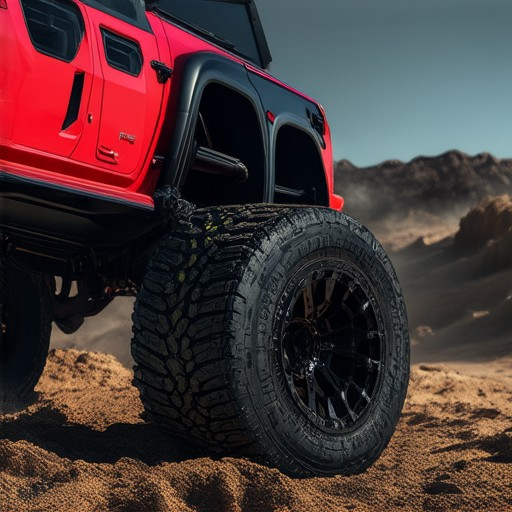
Are Off-Road Tires Good for Daily Driving?
Off-road tires, particularly all-terrain (A/T) tires, are indeed suitable for daily driving on paved roads. While they may not be the most optimized for everyday use, they offer excellent versatility and performance in various conditions.
- Durability and Traction: Off-road tires are built to withstand rough terrain, which means they can handle the wear and tear of daily commuting. Their deep treads provide better grip on wet or uneven surfaces compared to standard tires.
- Weight Consideration: Some off-road tires are slightly heavier than their passenger tire counterparts. This added weight may affect fuel efficiency, but the benefits in terms of traction and longevity often outweigh this drawback.
- Versatility: All-terrain tires are designed for mixed use, making them a practical choice for drivers who value having one set of tires for both on-road and off-road adventures.
However, if you primarily drive on paved roads, stick with dedicated passenger tires for optimal comfort, fuel efficiency, and handling. For those seeking a versatile option, all-terrain tires are a solid choice that offers excellent everyday performance without compromising on off-road capabilities.
If you’re considering upgrading your tires, visit Incubus Wheels to explore our selection of high-quality off-road and all-terrain tires designed for both daily driving and rugged adventures.
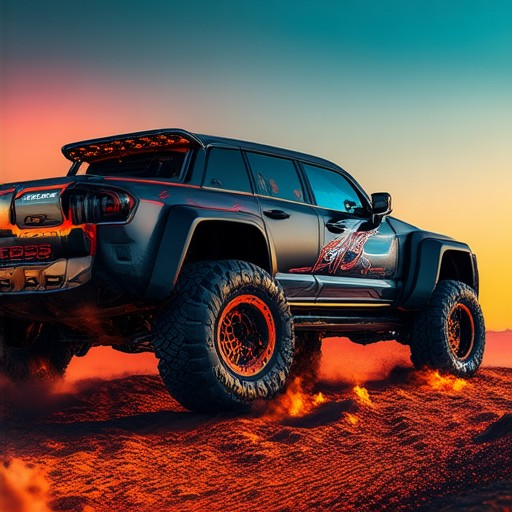
All-Season Tires for Off-Road Considerations
All-season tires, while versatile for general driving conditions, may not be the optimal choice for rigorous off-road scenarios. Here’s a breakdown of their suitability:
- General Performance:** All-season tires excel on paved roads and in varying weather conditions due to their balanced tread design.
- Light Off-Road Use:** They can manage occasional use on packed gravel or dirt roads, offering better traction than standard street tires.
- Challenging Conditions:** For loose gravel, deep ruts, or extreme terrain, all-season tires may lack the necessary durability and traction, risking slips and rapid wear.
- Environmental Factors:** They perform adequately in both hot and cold climates but are less effective in extremely rough or snowy conditions.
- Durability Concerns:** Exposed to rough surfaces and impacts, all-season tires may sustain damage or wear faster than dedicated off-road tires.
Consideration of Alternatives:
For frequent or demanding off-road activities, all-terrain tires are recommended. They offer improved traction, durability, and protection against harsh conditions, making them a more suitable choice for serious off-roading needs.
Remember to assess your driving habits and the severity of your off-road adventures to determine the most appropriate tire choice.
Do Off-Road Tires Get Worse Gas Mileage?
Yes, off-road tires typically result in slightly worse gas mileage compared to street or all-terrain tires due to their design differences. Here’s why:
- Increased Rolling Resistance : Off-road tires have deeper treads and softer rubber compounds designed for maximum traction on uneven surfaces. This increased flexibility and larger contact patch contribute to higher rolling resistance, which reduces fuel efficiency.
- Weight Penalty : Off-road tires are generally heavier than their street counterparts. Extra weight can drain engine power, further impacting MPG.
- Driving Habits : Aggressive driving styles, such as rapid acceleration or hard braking, can exacerbate fuel efficiency losses regardless of tire type.
To mitigate these effects, consider the following tips: – Maintain proper driving techniques to minimize energy loss. – Opt for all-terrain tires if you need a balance between off-road capability and better fuel economy. – Regularly check and maintain optimal tire pressure for improved efficiency.
For more information on selecting the right tires for your needs, visit our tire guide .
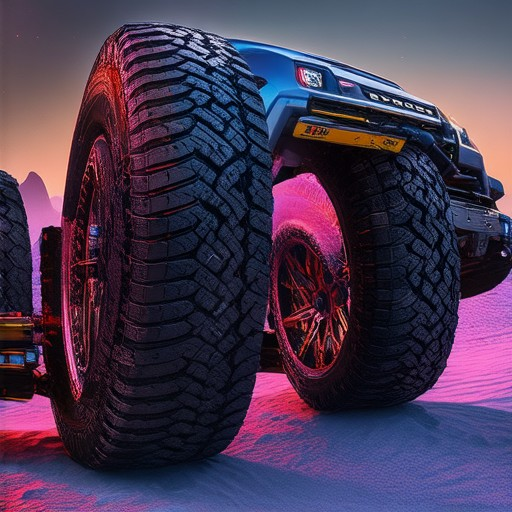
Can You Drive All-Terrain Tires on a Highway?
All-terrain tires are primarily designed for off-road use due to their aggressive tread patterns and robust construction. However, driving them on highways is possible, but there are several considerations to keep in mind:
- Safety Concerns: All-terrain tires may not provide the same level of grip and stability as dedicated highway tires, potentially leading to reduced control and stopping power.
- Performance: You may notice decreased comfort and increased road noise compared to regular tires designed specifically for highways.
- Legality: In some jurisdictions, driving all-terrain tires on public roads may be prohibited or require special permits. Check local regulations before doing so.
While technically possible, using all-terrain tires on highways is generally discouraged for safety and legal reasons. For optimal performance and comfort on paved roads, stick to tires specifically designed for highway use.
Conclusion
Driving all-terrain tires on a highway is feasible, but it comes with trade-offs in terms of safety, comfort, and potential legal implications. Always consider these factors before choosing to use them on public roads.

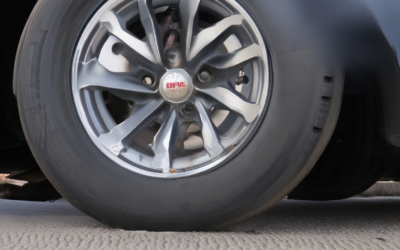
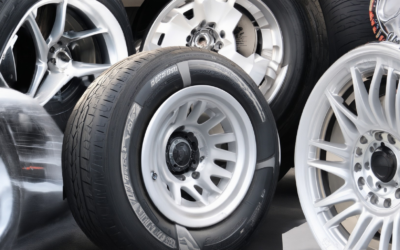
0 Comments